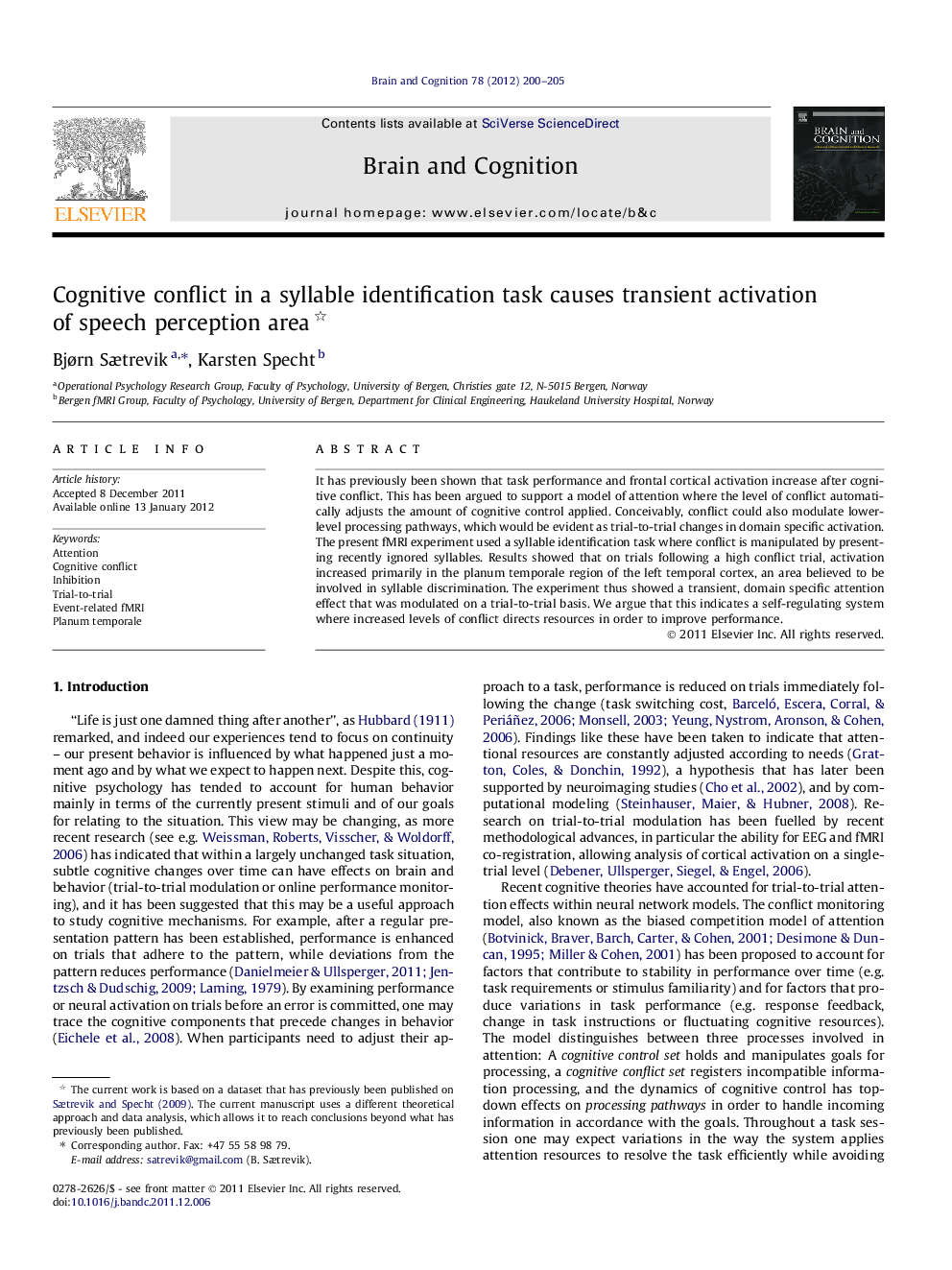| Article ID | Journal | Published Year | Pages | File Type |
|---|---|---|---|---|
| 924139 | Brain and Cognition | 2012 | 6 Pages |
It has previously been shown that task performance and frontal cortical activation increase after cognitive conflict. This has been argued to support a model of attention where the level of conflict automatically adjusts the amount of cognitive control applied. Conceivably, conflict could also modulate lower-level processing pathways, which would be evident as trial-to-trial changes in domain specific activation. The present fMRI experiment used a syllable identification task where conflict is manipulated by presenting recently ignored syllables. Results showed that on trials following a high conflict trial, activation increased primarily in the planum temporale region of the left temporal cortex, an area believed to be involved in syllable discrimination. The experiment thus showed a transient, domain specific attention effect that was modulated on a trial-to-trial basis. We argue that this indicates a self-regulating system where increased levels of conflict directs resources in order to improve performance.
► We applied a syllable discrimination task that varied the degree of cognitive conflict. ► fMRI activation increased in perceptual areas following high conflict trials. ► This indicates that processing resources are automatically directed according to task demands. ► This may indicate a self-regulating attentional mechanism applied to language stimuli.
